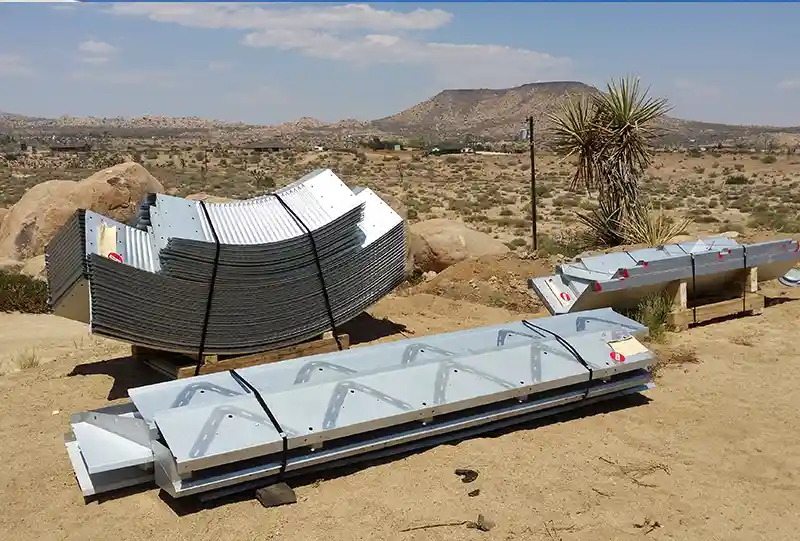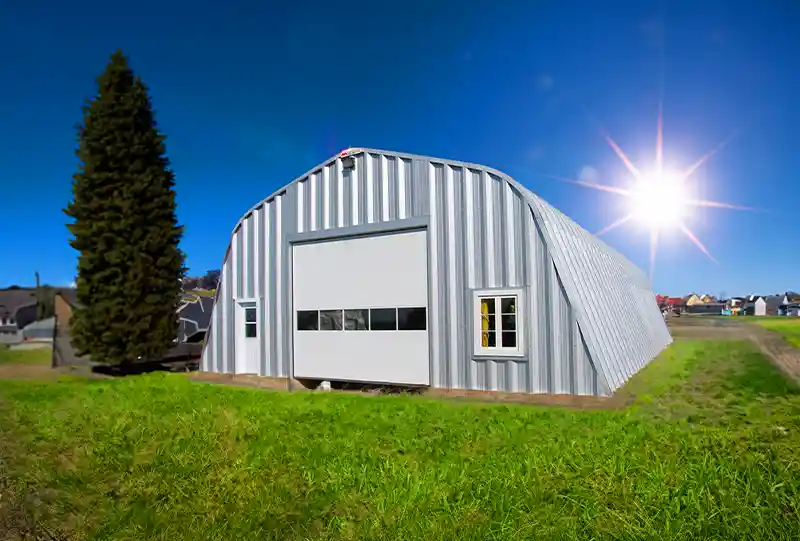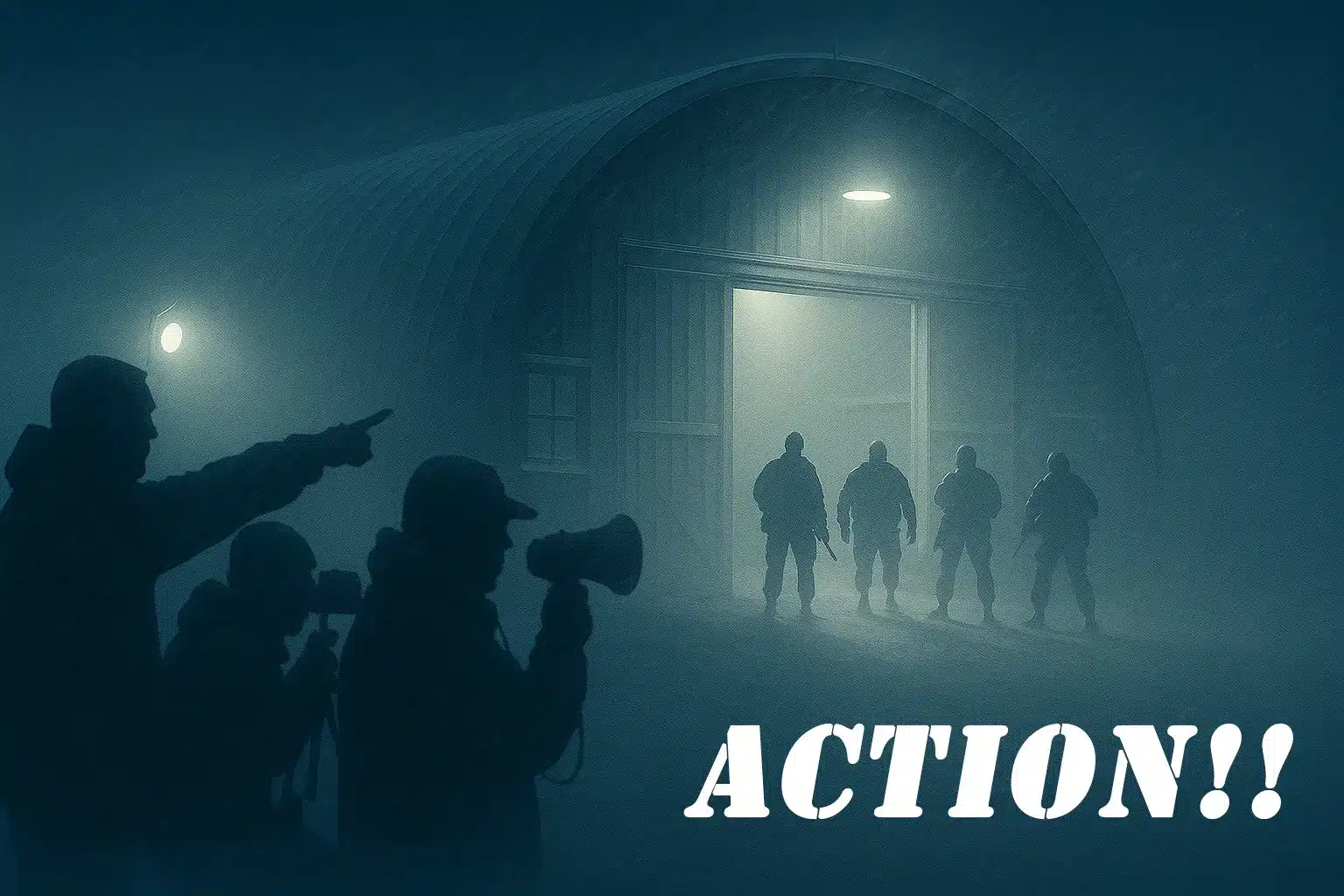Everything You Need to Know About the Quonset Hut

Quonset huts have been in use since the early 1940s. Today, you can find Quonsets for sale online. There are more designs and styles in use today to help accommodate the variety of residential and commercial applications all over the world.


How Did Quonset Huts Start?
The first Quonset hut was made in 1941 by the George Fuller Construction Company for the U.S. Navy. It was based on the Nissen hut design that was common in World War I.
During the second world war, the Navy had a need for structures that didn’t require skilled labour to assemble, were quick to put up and take down, didn’t require concrete and could stand up to adverse weather conditions and generally their various military requirements.
Based on these specifications, the George Fuller Construction Company created the first Quonset building.
Also Read: The History of the Quonset
Why Did the Navy Consider Quonset Huts?
The U.S. Navy was in need of a compact and easy to transport structure that had optimum interior space for many uses. The Quonset design presented several advantages to other available structures, making it the obvious building choice for use during the war. These advantages include:
Origin of the Arch
The arch design can be traced back to ancient Roman construction. The Romans were the first civilization in Europe to understand and utilize the benefits of the arch, the vault, and the dome. Roman engineers used the arch shape in a variety of the structures they built, including bridges, gates, and aqueducts. The Roman engineers figured out that using arches in their structures would give them strength.
By using a single piece that runs from the ground, up in a curve to form a roof and then back down to the ground, they could create stronger structures than if they were to build with any other format or use separate pieces. The strength of the arch design discovered many years ago is the basis for Quonset buildings.
Agricultural Quonset Barns
Some people looking for a Quonset hut for sale intend to use it for agricultural purposes. Being able to shelter the products of their livelihood is essential, so agricultural workers often look to Quonset buildings. Metal Quonset buildings can be used as storage for equipment and crops, or as a shed for livestock.
Compared to traditional wooden pole barns, a metal Quonset building will last longer, require less maintenance, and hold up better against the elements, pests or rot.
Some of the common applications for Quonsets on a farm include:
Other Uses of Quonset Huts
You can also use the Quonset huts for:
Frequently Asked Questions About Quonsets
Q1) What does the name Quonset mean?
A1) These structures took their name from the location of the first manufacturing facility in Quonset Point, Rhode Island.
Q2) How long can I expect my Quonset hut to last?
A2) They are engineered and built to last for generations to come but also each of our Quonset huts for sale come with a 50-year rust-perforation warranty. With proper care and minimal maintenance, Quonsets can last for decades.
They are manufactured out of Galvalume Plus™ Steel, one of the most durable, corrosion-resistant metals available. All our steel is purchased directly from ArcelorMittal Dofasco to ensure consistency of quality grade steel and optimal pricing.
Read more about Galvalume Plus™ Steel at their website here.
Q3) Can Quonset huts be painted?
A3) You can paint Quonsets. These huts are made of galvanized steel, which can be painted easily. Painting a hut can provide added protection and also allow you to match the hut to other structures on your home, your farm or commercial property.
Q4) What differentiates Quonset huts from Nissen huts?
A4) Invented by Lt. Colonel Peter Nissen, the Nissen huts were small with basic designs. However, their form and function were the same as Quonset huts. Quonset huts are often larger and use more sophisticated designs.
Q5) How have Quonset huts improved since their inception in 1941?
A5) Today, you can have Quonset huts in a variety of styles and widths and unlimited lengths to match any application. You can check out all our building styles below.
If you are interested in learning about our straight wall style of steel buildings, check out our sister company, Toro Steel Buildings.
Contact Us to Inquire About Purchasing Quonsets
The popularity of Quonset will continue as the advantages of these structures become more apparent. These huts can be used in a variety of applications, both commercial and residential.
If you are looking to purchase a Quonset or any of our other steel building kits, contact us online or call us at 1-800-668-5111 today.
Related posts
2 Comments
Leave A Comment









Hi, I have a chance to stand a 50’x70′ metal quonset hut. wondering can you give me an idea of what i should charge to build. The arches go right down to the ground both sides.
This site, and no other site I can find shows how deep a structure must be for engineering soundness.
Example: For 40′ arches @ 18 guage, how deep must the building be to be structurally sound?